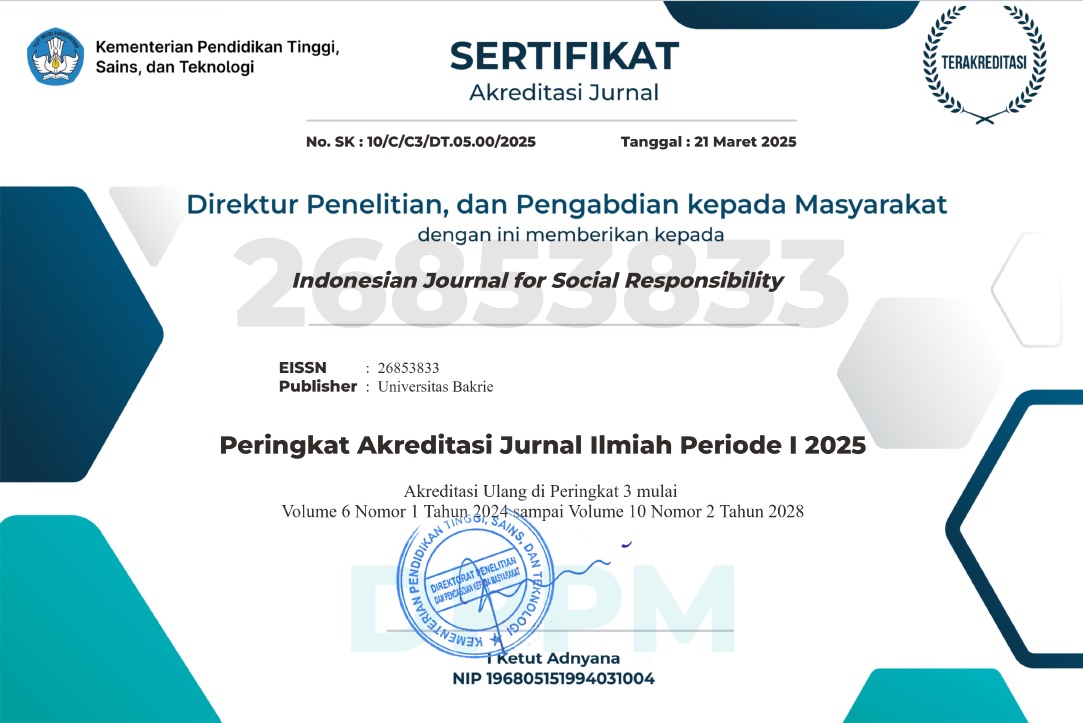Pelatihan Produksi Dodol Berbasis Nangka di Desa Tritis Yogyakarta
DOI:
https://doi.org/10.36782/ijsr.v1i01.6Keywords:
dodol, jackfruit, processed food, empowermentAbstract
Tritis Village, Purwobinangun, Pakem, Sleman is one of the villages in the city of Yogyakarta which has a middle to lower economic level with the potential for garden produce in the form of abundant jackfruit, but with very cheap selling prices. Jackfruit Dodol is one of the processed food products that can be developed to increase the economic value of jackfruit. In this community service program, the community was given training in the development of jackfruit dodol products that were given innovations by adding beans as fillings and by making packaging designs that were different from the common dodol products on the market. The existence of jackfruit-based food processing training and product development innovation, is expected to be able to empower the potential of the resource and the community of Tritis Village. Furthermore, this product is expected to be able to become one of the typical food products by Yogyakarta, so that it has an impact on improving the economy of the people.
Downloads
References
Akbar AT, Pangestu E. 2017. Peran Kuliner Dalam Meningkatkan Citra Destinasi.Pariwisata Taman Nasional Bromo Tengger Semeru. Jurnal Administrasi Bisnis (JAB), 50(1): 153-159.
Alkurni W, Zuliarni S. 2014. Analisis Proses Pengembangan Produk Baru Dalam Rangka Menghadapi Persaingan Bisnis (Kasus Pada MM. Cake & Bakery Pekanbaru). Jom FISIP, 1(2): 1-12.
Anggriana A, Mahardi, Ristiadi. 2017. Karakteristik Buah Nangka (Artocarpus Heterophyllus Lamk) Siap Saji Yang Dipasarkan Di Kota Palu. e-J. Agrotekbis, 5(3): 278-283.
Ansar, Nazzaruddin. 2018. Peningkatan Produktivitas dan Kualitas Dodol Nangka di Desa Suranadi Lombok Barat Nusa Tenggara Barat. Jurnal Panrita Abdi, 2(2): 135-141.
Badan Standarisasi Nasional (BSN). 1992. SNI Syarat Mutu Dodol. Jakarta: Badan Standarisasi Nasional.
Badan Standarisasi Nasional (BSN). 1996. SNI Syarat Mutu Dodol Nangka, Dodol Nanas, Dodol Sirsak. Jakarta: Badan Standarisasi Nasional.
Basito. 2009. Sifat Fisik, Kimia, Dan Organoleptik Pada Pembuatan Dodol Yang Disubstitusi Dengan Wortel (Daucus carota, Linn). Jurnal Teknologi Hasil Pertanian, 2(2): 104-111.
Hariyadi P. 2014. Pengembangan Industri Pangan Sebagai Strategi Diversifikasi Dan Peningkatan Daya Saing Produk Pangan 1. Seminar Nasional Sains dan Teknologi 2014 “Peranan Sains dan Teknologi yang Berwawasan Lingkungan dalam Meningkatkan Kesejahteraan Umat Manusia”, Bali: 18-19 September 2014. Hal. 8-17.
Kelmaskosu D, Breemer R, Polnaya F. 2015. Pengaruh Konsentrasi Tepung Beras Ketan terhadap Mutu Dodol Pepaya. Agritekno. Jurnal Teknologi Pertanian, 4(1): 19-24.
Nasaruddin NL, Chin YA, dan Yusof. 2012. Effect Of Processing on Instrumental Textural Properties of Traditional Dodol Using Back Extrusion. Int. Journal Food Pro, 15(3): 495–506.
Pemerintah Kabupaten Sleman. 2019. Dalam Letak dan Luas Wilayah Kabupaten Sleman [Internet]. [Diakses pada 12 Agustus 2019]. Tersedia pada: http://www.slemankab.go.id/profil-kabupaten-sleman/geografi/letak-dan-luas-wilayah.
Setiavani G, Sugiyono, Ahza AB, Suyatma NE. 2018. Teknologi Pengolahan dan Peningkatan Nilai Gizi Dodol. Jurnal Pangan, 27(3): 225-234.
Syamsir E. dan Prita DLS. 2010. Pengembangan Dodol sebagai Produk Pangan Darurat. Jurnal Ilmu dan Teknologi Pangan, 8(2): 65–76.















